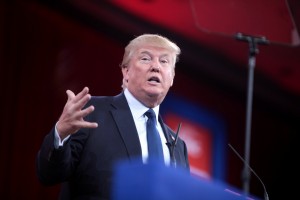
Donald Trump’s plan for tax reform is the most populist so far seen among the presidential candidates. It is also the most faithful to supply-side principles.
Why? Populism in its root meaning is optimism about the ability of people to make decisions affecting themselves. Its opposite, elitism, is optimism about the ability of elites to make those decisions for them.
Unlike most recent Republican plans, Trump avoids single year expensing for corporate investment in new physical capital (machines and buildings). Though rarely highlighted by its advocates, it is so expensive it preempts the ability to cut personal rates very much, without huge projected deficits.
Instead of single year expensing, Trump’s plan cuts business taxes to 15 percent and personal rates to zero, 10, 20, and 25 percent. Among other things, leaving business depreciation the way it is allows Trump to zero out income taxes for a single person earning under $25,000 and a couple under $50,000. This is, to say the least, an attractive prospect for tens of millions of non-rich Americans.
But populism is not just about popularity. Cutting taxes for individuals and families is a vote of confidence in the ability of ordinary people to make use of their income, rather than sending it on a round trip to government and other elites to decide what they need. It is far more like Ronald Reagan’s tax revolution, which focused on personal tax rate cuts rather than corporate incentives.
Reagan’s tax rate reductions, which saw the top rate on personal income drop from 70 to 28 percent between 1981 and 1988, were successful in both economic and political terms because they trusted the people to make good decisions. Reagan made some tax changes favorable to businesses, but economically speaking they were minor and politically speaking they are unremembered.
Supply-side tax policy, which at its best is a subdivision of populism, imposes the lowest possible tax rates on the widest possible definition of income. The plan offered on September 28 by Donald Trump, while not perfect, comes the closest in many years to meeting that definition.
Jeff Bell is the Policy Director of American Principles in Action.


